Does God forgive suicide? Spoiler alert: YES! And what is Paul referring to in Ephesians 1:3 when he writes about heavenly places? Is that heaven or something else? These are a few of the questions that get addressed in this episode of the Redeeming God Podcast.

Will God Forgive Suicide?
I received a tragic email from a reader recently. Here is what she wrote:
My brother recently took his own life due to depression. The last sentence of his letter that he left behind, he stated that he hopes to see us in God’s kingdom if it is in God’s will. As I’m reflecting back, my brother believes in God and believes in Heaven. He knows that what he is doing isn’t the right way to escape his emotions, but he’s going to do it anyways. While at the same time, he’s hoping that God will have mercy on his soul.
I’m writing to seek answers to help bring closure. I’ve listened to your podcast on Hades in YouTube. My first question is, will my brother’s soul exist in a conscience state in Hades? When I die, will my brother and I still exist in a conscience state of mind where I can ask him why he did what he did? I know that the Bible teaches that our bodies will be resurrected, but before then, will I see my brother?
Lastly, those who commit suicide, do they get to go to heaven?
 I have addressed similar questions about suicide and the unforgivable sin elsewhere, but here is what I wrote in reply to this woman:
I have addressed similar questions about suicide and the unforgivable sin elsewhere, but here is what I wrote in reply to this woman:
I am so sorry this happened. What a terrible tragedy. Depression is such a terrible thing, and it takes so many lives. I am so sorry for your loss.
There is no reason to assume that your brother will not spend eternity with God. If he said that he hopes God has mercy on his soul, this seems to me to be an indication that he looked to God as the only source of hope and eternal life for himself. If that is what he did at any time during his life, even if it was in his last seconds, then he is already with God in eternity.
And yes, suicide is completely forgivable. God always forgives us for all our sins. I have done a lot of study and teaching on forgiveness in Scripture, and the forgiveness of God is complete and universal. So do not worry that your brother’s suicide kept him out of heaven. It didn’t.
I believe that you will see your brother again.
I hope you find comfort and hope in your time of loss.
What does the phrase “In Heavenly Places” mean? (Ephesians 1:3)
Ephesians 1:3. Blessed be the God and Father of our Lord Jesus Christ, who has blessed us with every spiritual blessing in the heavenly places in Christ,
The following teachings are drawn from my study on Ephesians 1:3-4 and my Gospel Dictionary entry on Heaven.
Ephesians 1:3 is a summary of chapters 1, 2 and 3. It is kind of the thesis sentence. Paul begins with praise to God for these spiritual blessings. And Paul tells us where these blessings are from, heavenly places, and that all such blessings belong to us in Christ.

Every Spiritual Blessings
The first thing to note is that God has given us every spiritual blessing. God has not given you some spiritual blessings, but every spiritual blessing. There is not a blessing which God could give you that He has not given you. If there is a spiritual blessing God can give you, He has already given it to you.
A couple things should be said about this. First, these are spiritual blessings. Paul is not saying here that we have in our possession every possible blessing, but that we have every spiritual blessing. I think that all of us can think of some physical blessings that we do not have. Better health. A better marriage. Or maybe a relationship. More money. A job. Such things are blessings as well, but they might not be ours.
This is one of the great misunderstandings in the health-and-wealth-prosperity-gospel-name-it-and-claim-it teachings that you hear in some churches. They use texts like Ephesians 1:3 to say that God has given you every possible blessing, including all physical blessings, and that if you just have enough faith, if you just claim what is already yours in Jesus Christ, then you will get it. Even if it’s a nice car, or a perfect health, or a great marriage.
But that is not what Ephesians 1:3 teaches. These are spiritual blessings. These include things like grace, mercy, love, and forgiveness from God. They include election, calling, and purpose for this life. They include hope, joy, peace about the future. One great spiritual blessing, of course, is eternal life. All such things have already been given to you. They are yours.
So in the case of spiritual blessings, you don’t need to pray or ask for God to give them to you. You just need to recognize that you already have them, and then live in light of the fact that you have these spiritual blessings.
When you sin, you don’t need to ask God for forgiveness, because He has already forgiven you for all your sins, past, present, and future. Instead, you can simply thank Him for the forgiveness have been given.
When you struggle with a joyful outlook on life, you don’t need to ask God to give you hope and joy. Instead, you can ask God to give you a proper perspective on life so that you can see the truth about what is going on in this world and in your life, and thus, experience the hope and joy God has already given to you.
When it comes to what you are supposed to be doing in this world, what your purpose is, you don’t need to ask God to give you a purpose. Instead, you can thank God for the goals, purpose, and tasks He has already assigned to you, and then ask Him for wisdom and insight to help understand what these tasks and purposes are. It might help to know the spiritual gifts you have already been given as well. I have an online course to help you know your spiritual gifts.
Do you see? So in your life, when it comes to spiritual blessings, you don’t need to feel left out, forgotten, or neglected by God. He has already given you everything you need for life and godliness (2 Peter 1:3). You just need to recognize what these blessings are, and then learn how to benefit from them and use them in your life. Ephesians 1-3 will be explaining a lot more about how to do this.
In Christ
Notice at the end of Ephesians 1:3, it says that these spiritual blessings are “in Christ.” We are blessed because we are in Christ.
 Only believers are “in Christ.” If you have believed in Jesus for eternal life, then you are in Christ. This means that only believers have every spiritual blessing. Unbelievers don’t have every spiritual blessing because they are in Christ.
Only believers are “in Christ.” If you have believed in Jesus for eternal life, then you are in Christ. This means that only believers have every spiritual blessing. Unbelievers don’t have every spiritual blessing because they are in Christ.
It is important to recognize that our spiritual blessings are not in ourselves. They are not from ourselves. When life gets us down and we become discouraged, this is often because we are looking to ourselves for joy, hope, and fulfillment. But we will always let ourselves down. Jesus, however, will never disappoint us, and when we keep our eyes on Him, when we follow Him, when we look only to Him for joy and satisfaction, it is then that we are able to see and utilize the spiritual blessings that God has given to us in Jesus Christ.
This is also important to remember because we sometimes make the mistake of comparing our spiritual blessings with worldly physical blessings. We see people who are not in Christ, and yet they have riches and fame, and we sometimes get jealous of that. We want a life of luxury and ease as well.
But from an eternal perspective, the blessings we have in Christ far exceed and are of much greater value than any amount of physical blessings that this world can offer. So keep your eyes fixed on Jesus.
In Heavenly Places
The final thing I want to point out from Ephesians 1:3 is this concept of our spiritual blessings being in heavenly places. This is a recurring theme in Ephesians. Along with being here in Ephesians 1:3, it is also found in Ephesians 2:6 and Ephesians 6:12.
Many assume that the phrase “in the heavenly places” refers to “being in heaven with God.” That is, not being on earth, but in some other place. And this does indeed seem to fit with how the term is used in Ephesians 1:3 and Ephesians 2:6. Our spiritual blessings are in heavenly places with Christ, who is in heaven, and we are seated with Christ, who is at the right hand of God in heaven (Acts 7:55-56).
But does this mean we have to wait until heaven to gain these spiritual blessings? In other words, if God has given us every spiritual blessing, but we have to wait until heaven to receive, enjoy, or experience these blessings, then what good are they now?
Well, Ephesians 6:12 helps us understand what Paul means when he refers to heavenly places.
In Ephesians 6:12, the phrase “in heavenly places” is used in reference to spiritual hosts of wickedness that are here on this earth now, and how we are to struggle against them here and now during our earthly lives. Therefore, the phrase “in the heavenlies” does not refer to an otherworldly place in which God dwells, and where evil forces battle against God. Rather, the phrase refers to a spiritual reality that is present here and now on this earth. The phrase does not refer to some future existence after we die, or even to what occurs in some heavenly location far away from earth. The phrase has in mind the words of Jesus from Matthew 6:10, where He prayed that God’s will would be done on earth, as it is done in heaven. So the phrase “in the heavenlies” means “in the spiritual realm here on earth, during our lives now.”
When this usage is understood from Ephesians 6:12, the other references to “in the heavenlies” make sense in similar ways. Our task as followers of Jesus is to help make heaven an earthly reality. We do this by recognizing that we have already been given innumerable spiritual blessings and riches in Jesus Christ (Eph 1:3-14), and that since we are seated with Christ (Eph 2:6), we have the authority on this earth to carry out God’s will.
So while the phrase “in the heavenlies” does refer to a spiritual reality, it refers to the spiritual reality as it is carried out in the physical realm, here on this earth, during our lives now.
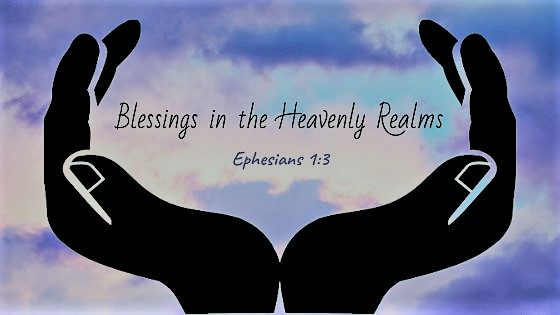
Far too often, Christians focus so much on eternity and the afterlife, that they neglect the work that God has called us to do here and now in our lives. As someone once said, “Some Christians are so heavenly minded, they are no earthly good.” When this happens, we allow the spiritual hosts of wickedness to have their way on their earth.
As Christians, we are seated with Christ in heavenly places so that we can rule and reign with Christ here on earth, not only in the future, but also (primarily!) during our lives now. The battle is a spiritual battle, but it has far-reaching ramifications and consequences in the physical world. One of the primary ways we do battle in the spiritual world by seeking to help people in the physical world.
These spiritual hosts of wickedness are seeking to destroy people’s lives, inhibit the truth of the gospel from spreading upon the earth, and hinder the effectiveness of the church. We struggle against these forces with all our might so that lives can be saved, the gospel can spread, and the church can serve others in this world. The struggle is spiritual in nature, but physical in how it manifests in this world.
All of this then means that the spiritual blessings which God has given to us in Jesus Christ are not for some future experience after we die and are resurrected to spend eternity with God and the saints. No, the spiritual blessings God has given to us in Jesus Christ are for this life here and now. You can draw on these blessings and experience these heavenly, spiritual blessings right now.
If this excites you, and you want to know how to start experiencing some of these spiritual blessings right now, well, Paul begins to write about this exact thing in Ephesians 1:4, which we will look at in our next study.


 Here’s the truth about politics. When it comes to politics, it doesn’t matter what politicians say … it matters what they DO. Many politicians lie. They say what they think the voters want to hear, and then when they get into power, they do the opposite. So I don’t really care if you think Trump was mean on Twitter or wasn’t the most polished speaker. All that matters is what he actually DID. And the facts speak for themselves. Take just two areas. Trump was the most pro-life and pro-peace president we have ever had. He is the only president in modern history to not start a war, but in fact, work to end them. He is the only president who took actual steps to end the slaughter of innocent, unborn babies. And since Jesus Himself is pro-life and pro-peace, these two factors alone mean that Trump was leading the nation in Christlike directions.
Here’s the truth about politics. When it comes to politics, it doesn’t matter what politicians say … it matters what they DO. Many politicians lie. They say what they think the voters want to hear, and then when they get into power, they do the opposite. So I don’t really care if you think Trump was mean on Twitter or wasn’t the most polished speaker. All that matters is what he actually DID. And the facts speak for themselves. Take just two areas. Trump was the most pro-life and pro-peace president we have ever had. He is the only president in modern history to not start a war, but in fact, work to end them. He is the only president who took actual steps to end the slaughter of innocent, unborn babies. And since Jesus Himself is pro-life and pro-peace, these two factors alone mean that Trump was leading the nation in Christlike directions. Anyway, since people made predictions about the Trump presidency when it began, let me make a few predictions of my own for what will occur under a Biden/Harris Administration. I will revisit this list prior to the next presidential election to see how I did.
Anyway, since people made predictions about the Trump presidency when it began, let me make a few predictions of my own for what will occur under a Biden/Harris Administration. I will revisit this list prior to the next presidential election to see how I did.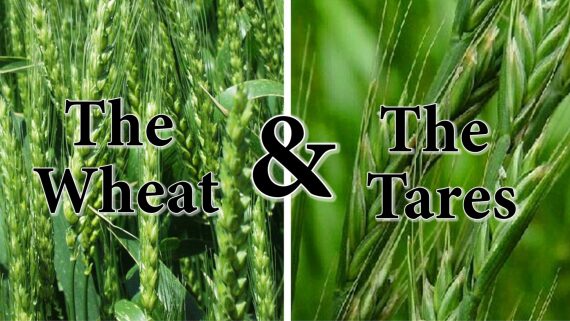
 Since wheat and darnel appear so identical, the presence of the tares in the field goes unnoticed until the grain begins to “go to crop,” or develop a head. This is why the servants only notice the tares once the wheat begins to mature (Matthew 13:26). So they ask the owner if he wants them to pull out the tares, but since wheat and darnel look quite similar to each other prior to full maturity, the owner tells his servants to leave the weeds alone and let them grow along with the wheat. At harvest, the reapers will go through and gather the tares, and then they can harvest the wheat (Matthew 13:30). The tares are thrown into the fire to be burned.
Since wheat and darnel appear so identical, the presence of the tares in the field goes unnoticed until the grain begins to “go to crop,” or develop a head. This is why the servants only notice the tares once the wheat begins to mature (Matthew 13:26). So they ask the owner if he wants them to pull out the tares, but since wheat and darnel look quite similar to each other prior to full maturity, the owner tells his servants to leave the weeds alone and let them grow along with the wheat. At harvest, the reapers will go through and gather the tares, and then they can harvest the wheat (Matthew 13:30). The tares are thrown into the fire to be burned. But if the servants are Christians, then who are the “sons of the kingdom”? Jesus says the seed is the sons of the kingdom. But if the servants are Christians, then the sons of the kingdom (the seed) cannot also be Christians. To put it another way, since the servants are the followers of Jesus, then this means that the sons of the kingdom must be someone else. And when we understand the identity of the sons of the kingdom, we will also understand the identity of the sons of the evil one (which might be better translated as “sons of wickedness”; Matthew 13:38).
But if the servants are Christians, then who are the “sons of the kingdom”? Jesus says the seed is the sons of the kingdom. But if the servants are Christians, then the sons of the kingdom (the seed) cannot also be Christians. To put it another way, since the servants are the followers of Jesus, then this means that the sons of the kingdom must be someone else. And when we understand the identity of the sons of the kingdom, we will also understand the identity of the sons of the evil one (which might be better translated as “sons of wickedness”; Matthew 13:38).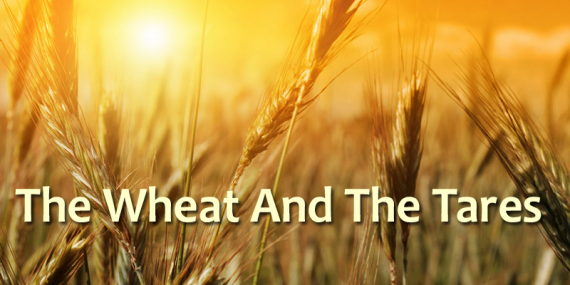

 Matthew 12:33-37 (and the parallel passage in Luke 6:43-45) is a key passage for understanding the symbolic use of fruit in Scripture.
Matthew 12:33-37 (and the parallel passage in Luke 6:43-45) is a key passage for understanding the symbolic use of fruit in Scripture.
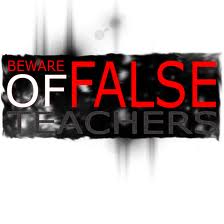 The biblical teachings about good and bad fruit don’t even apply to the average person who is generally uniformed or uneducated about what the Bible teaches. Instead, the warnings from Scripture about good and bad fruit primarily apply to those whose job it is to teach others about Scripture and theology.
The biblical teachings about good and bad fruit don’t even apply to the average person who is generally uniformed or uneducated about what the Bible teaches. Instead, the warnings from Scripture about good and bad fruit primarily apply to those whose job it is to teach others about Scripture and theology.





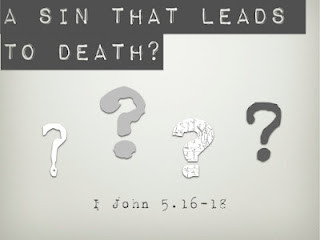 Recently someone sent in a question about the sin unto death.
Recently someone sent in a question about the sin unto death.
